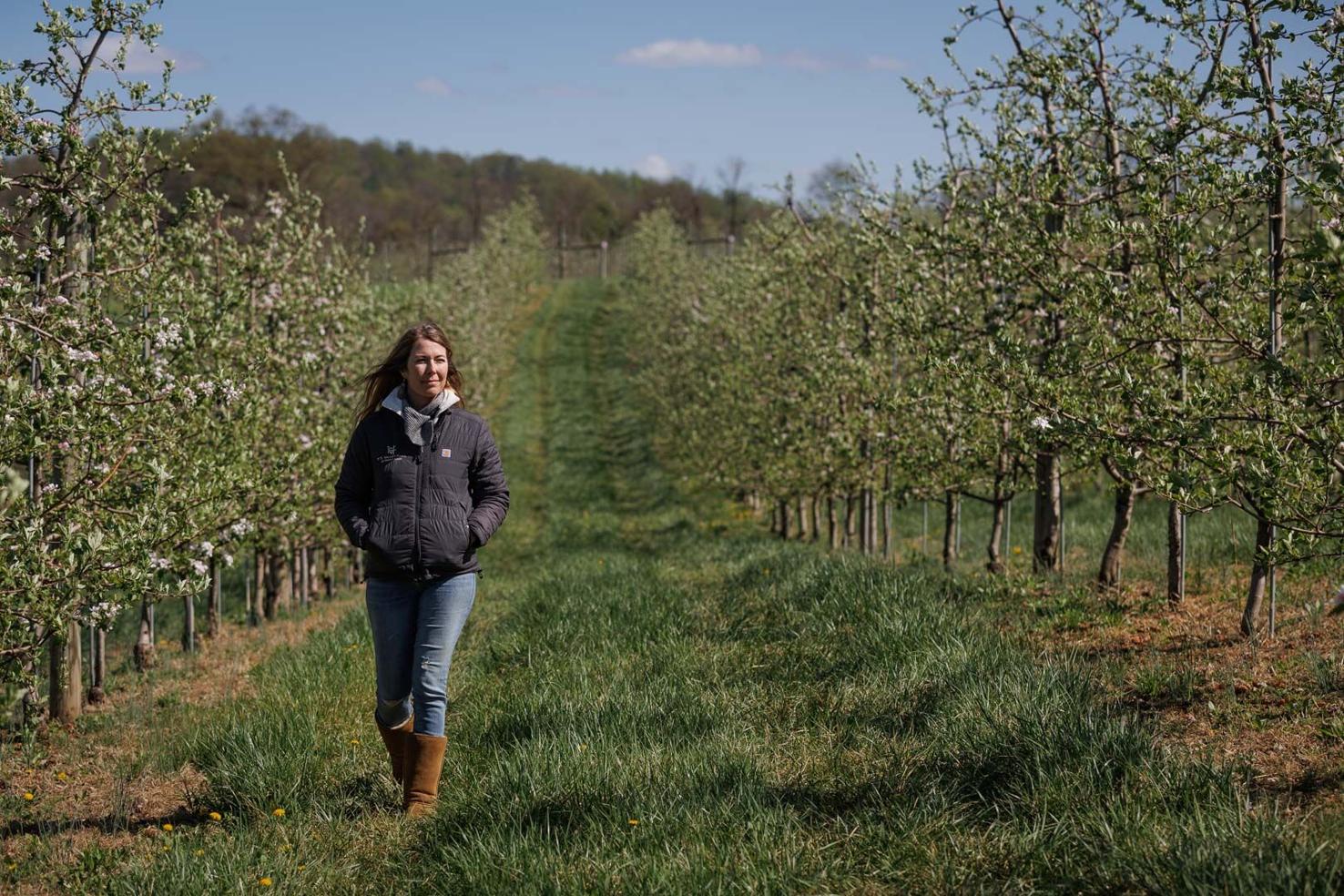Tariffs imposed by the Trump administration are causing uncertainties in the global agricultural sector.
Once again, local farmers may be affected.
Tariffs of at least 10% across all countries are now in effect, with higher rates for those deemed “worst offenders” including Vietnam, China and the European Union. International uproar resulted in a three-month Trump pause, except for those against China — one of Virginia’s largest agricultural export partners. Tariffs on Chinese goods are at 145%; China hit back with a 125% tax on U.S. products.
“The ripple effect of budget cutting and tariffs affects all farmers,” Rappahannock County Extension Agent Kenner Love said. “Retaliatory tariffs frequently target U.S. agricultural products that are dependent on global markets — soybeans, corn, pigs, apples, beef, chicken, distilled spirits, etc.”
According to data from international merchandise trade data supplier Global Trade Information Services, Virginia’s top export markets in 2023 were China, Canada, United Kingdom, Taiwan and Belgium with the top agricultural and forestry exports being soybeans (approximately $1.4 billion), pork ($862 million), wood products ($400 million), poultry ($200 million) and tobacco ($180 million).
There are 399 farms in Rappahannock totalling 66,894 acres, according to the 2022 Census of Agriculture. Of those, there are 11,924 cattle and calves among 151 farms and 342 acres of soybeans among six farms. Fifty-nine farms have a collective 651 acres in orchards.
Here we go again
This isn’t the first time farmers have been affected by a trade war. During President Trump’s first term, tariffs were placed on Chinese imports, resulting in retaliatory tariffs and a halt to soy exports. According to the United States Department of Agriculture (USDA) Economic Research Service, there was a 76% reduction in the value of U.S. exports to China from 2017 to 2018 with the trade war costing agriculture more than $27 billion; soybeans accounted for 71% of those annualized losses.
“We run the risk of immediate impacts this growing season, along with the impacts a prolonged trade war with China will inflict on our industry once again,” American Soybean Association President Caleb Ragland said in a press release. “The short-term disruptions are painful, but the long-term repercussions to our reputation, our reliability as a supplier, and the stability of those trading relationships are hard to even put into words. We’re still reeling from Trade War One and are certainly not thrilled about an extended [Trade War 2].”
Rappahannock cattle farmer Jim Manwaring said China is a huge market, and while Trump issued payouts to farmers who were impacted by the last trade war, they did little to address the actual issues.
“Last time Trump imposed tariffs, he gave a big payout to the farmers affected, driving up the deficit without addressing the loss of overseas markets in the future,” Manwaring said. “All this turmoil makes the world see us as unreliable and they look elsewhere for their agricultural products.”
Manwaring’s 1,100-acre Red Oak Ranch both exports and imports beef. He said it’s unclear how tariffs may affect the commodity.
“How that balance will play out remains to be seen,” he said.

John Genho at Eldon Farms, June 2021. (Photo/Luke Christopher)
The Virginia Cattlemen’s Association is appreciative of the administration’s attempt to “level the playing field for American farmers and ranchers,” executive director Brandon Reeves said. He said it’s essential that American raised beef remains competitive with imports, especially those coming from countries with less efficient and lower cost production methods.
He said the take-home message for cattle producers is to have a risk management plan in place.
“We are in the midst of record high cattle prices,” Reeves said. “It can change in a hurry, especially if there is a weakening in demand”
John Genho, manager of Eldon Farms in Woodville, confirmed the high cattle prices. He said it’s actually a good time to be a beef producer with prices at an all-time high and oil and feed relatively low. He said he doesn’t see a change in the economics of agriculture coming in the near future unless a broad economic recession hits. While he expressed concern for those who have been hit by staffing reductions and scalebacks in government-funded programs for farmers, tariffs and trade wars are a bigger fear.
Equipment prices up
“We are feeling some impacts from increases in equipment prices, but my hope is that some of that is the uncertainty of where we’re at right now and as things become clear in the next few weeks things will calm down,” Genho said.
Love said almost all costs a farmer incurs to produce crops or raise livestock will increase due to tariffs on global supply chains, assuming the tariffs and budget are implemented. One thing that may increase is fertilizer. The bulk of potash fertilizer comes from the Canadian province of Saskatchewan and fertilizer is one of the biggest input costs associated with farming. In 2024, the USDA estimated that fertilizer accounted for 22% of total corn production costs.
“U.S.-imposed tariffs on key agricultural imports, such as potash from Canada, increase costs and disrupt deliveries for agribusiness firms,” Xi He, a Virginia Tech Agricultural Trade Policy Analyst, said. “These firms, especially those relying on just-in-time logistics for fertilizer, will face higher expenses and operational delays, straining the broader supply chain. These disruptions can then ripple through rural economies, in regions like the Shenandoah Valley.”
Another tariff target: Apples. However, Meredith Gilmore, F.T. Valley Farm’s Market Manager and Director of Sales and Distribution, said the orchard has always wanted to prioritize local sourcing to reduce the need for imported apples from out of state while strengthening community-based agriculture.
“Virginia has a rich history as an apple-growing state and our mission has always been to restore its agricultural significance in apple production,” she said.
With Virginia’s apple season still months away it remains to be seen what will happen in response to tariffs. During a recent visit to Pennsylvania, U.S. Secretary of Agriculture Brooke Rollins said the tariffs are an effort to create better trade deals with countries who have been taking advantage of the United States. Rollins said the administration is prepared to provide relief to farmers if there are damaging consequences to the trade negotiations as it did during the president’s first term.
“The hope and goal is that it won’t be necessary,” she said.





